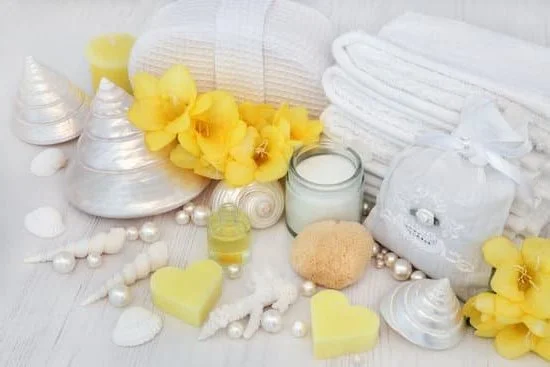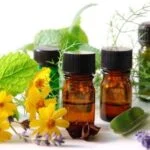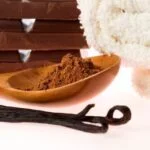Aromatherapy, the use of essential oils to promote physical and psychological well-being, is gaining popularity as a natural alternative for managing depression. In this article, we will explore the basics of aromatherapy and how it can be effectively used to alleviate symptoms of depression.
From understanding the science behind aromatherapy to practical tips for incorporating it into your daily routine, this comprehensive guide will provide you with the knowledge and tools to harness the power of aromatherapy for mental wellness.
Aromatherapy has been used for centuries as a holistic healing practice, utilizing the therapeutic properties of essential oils extracted from plants to improve health and emotional balance. Today, research is increasingly demonstrating the efficacy of aromatherapy in reducing stress, anxiety, and even symptoms of depression. Understanding the fundamentals of aromatherapy is essential in order to effectively harness its benefits for mental health.
In this section, we will delve into the basics of aromatherapy, including its history, principles, and methods of application. Whether you are new to aromatherapy or seeking a deeper understanding of its potential in managing depression, this introduction will lay the foundation for further exploration into the connection between aromatherapy and mental wellness.
The Connection Between Aromatherapy and Depression
Aromatherapy has been used for centuries as a natural remedy for various ailments, including depression. The practice involves using essential oils extracted from plants to improve the physical, emotional, and mental well-being of an individual. But what is the connection between aromatherapy and depression? Let’s explore the science behind this alternative treatment.
The olfactory system plays a crucial role in the connection between aromatherapy and depression. When essential oils are inhaled, they stimulate the olfactory receptors in the nose, which then send signals to the limbic system in the brain. The limbic system is responsible for regulating emotions, behavior, and long-term memory. This direct pathway from the olfactory receptors to the limbic system is what makes aromatherapy effective in influencing mood and emotions.
Another scientific explanation for the connection between aromatherapy and depression lies in the chemical composition of essential oils. Many essential oils contain compounds that have been shown to have mood-boosting effects. For example, lavender oil contains linalool, which has been found to have anti-anxiety and anti-depressant properties.
Similarly, citrus oils like bergamot and lemon contain limonene, known for its uplifting and stress-relieving properties. Understanding these biological mechanisms can help us better comprehend how aromatherapy can be used as a complementary approach in managing depression.
- Sniffing directly from the bottle
- Using a diffuser
- Inhaling through steam inhalation
Additionally, research has shown that certain essential oils have an impact on neurotransmitters such as serotonin and dopamine – both of which play a role in regulating mood and emotional well-being. Serotonin is often referred to as the “feel-good” neurotransmitter, while dopamine is associated with pleasure and reward. By influencing these neurotransmitters through inhalation or topical application of essential oils, it is believed that aromatherapy can help alleviate symptoms of depression.
In summary, understanding the science behind how aromatherapy works for depression involves recognizing its effects on the olfactory system, its impact on neurotransmitters, and the chemical composition of essential oils. With this knowledge in mind, individuals struggling with depression can explore how to do aromatherapy for depression using various techniques and methods to potentially improve their overall well-being.
- Diffusion
- Misting
- Massage therapy with diluted essential oils
Essential Oils for Depression
When it comes to using aromatherapy for depression, choosing the right essential oils is essential for achieving the desired results. Essential oils are the key components of aromatherapy and each oil has unique properties that can affect mood, emotions, and overall well-being. When selecting essential oils for managing depression, it’s important to consider factors such as personal preferences, individual sensitivities, and the specific symptoms of depression being experienced.
There are several essential oils that have been found to be particularly effective in alleviating symptoms of depression. Lavender oil is known for its calming and relaxing effects, making it a popular choice for reducing anxiety and stress. Bergamot oil has been shown to have mood-lifting properties and can help in boosting feelings of joy and positivity. Additionally, Frankincense oil is often used to promote emotional balance and a sense of inner peace.
In addition to these popular choices, other essential oils such as Ylang Ylang, Clary Sage, and Chamomile can also be beneficial in managing symptoms of depression. It’s important to note that individual responses to different oils can vary, so it may be necessary to try out a few different options to find the best ones for each person’s specific needs.
| Essential Oil | Main Properties |
|---|---|
| Lavender | Calming and relaxing effects; reduces anxiety and stress |
| Bergamot | Mood-lifting properties; boosts feelings of joy and positivity |
| Frankincense | Promotes emotional balance; enhances sense of inner peace |
It’s important to choose high-quality essential oils from reputable sources to ensure their effectiveness and safety. When using essential oils for managing depression, it’s recommended to dilute them with a carrier oil before applying them to the skin or using them in a diffuser. This helps reduce the risk of skin irritation or sensitization, especially for those with sensitive skin.
How to Use Aromatherapy for Depression
Aromatherapy is a popular complementary therapy that uses essential oils to promote physical and psychological well-being. When it comes to managing depression, aromatherapy can be a useful tool for alleviating symptoms and improving mood. In this section, we will explore the different techniques and methods for using aromatherapy to help with depression.
Inhalation
One of the most common ways to use aromatherapy for depression is through inhalation. This can be achieved by adding a few drops of essential oil to a handkerchief or tissue and inhaling the scent deeply. Another method is by using a diffuser to disperse the aroma throughout a room, creating a calming and uplifting atmosphere. Inhaling essential oils can help stimulate the olfactory system, which is connected to our emotions and mood regulation.
Topical Application
Another effective method for using aromatherapy for depression is through topical application. Essential oils can be diluted in a carrier oil, such as almond or coconut oil, and massaged into the skin. This allows the therapeutic properties of the essential oils to be absorbed into the bloodstream, providing both physical and psychological benefits. Popular areas for application include the temples, wrists, and soles of the feet.
Bath Therapy
Taking a relaxing bath infused with essential oils can also be an effective way to utilize aromatherapy for depression. Adding a few drops of your chosen essential oil to warm bathwater can create a soothing and calming experience. The steam from the bathwater helps disperse the aroma into the air, while your body absorbs the therapeutic properties of the oils through your skin. This method provides overall relaxation and can help alleviate symptoms of depression.
By incorporating these techniques and methods into your daily routine, you can effectively harness the power of aromatherapy for managing depression. Whether through inhalation, topical application, or bath therapy, aromatherapy offers a natural and holistic approach to enhancing mental well-being.
Creating the Perfect Aromatherapy Environment
When it comes to using aromatherapy for depression, creating the perfect environment is crucial in maximizing its benefits. The right ambiance can significantly enhance the effects of essential oils on your mood and overall well-being. Here are some tips for setting the mood and creating a perfect aromatherapy environment.
Choose a Calming Space
First and foremost, select a space in your home that is quiet, peaceful, and conducive to relaxation. This could be a cozy corner in your living room, a comfortable spot in your bedroom, or even a dedicated meditation area. It’s important to have a space where you can comfortably sit or lie down while enjoying the benefits of aromatherapy.
Use Soft Lighting
Soft, soothing lighting can help create a calming atmosphere for aromatherapy. Consider using candles, salt lamps, or dimmable lights to create a warm and inviting environment. Avoid harsh fluorescent lighting, as it can be too bright and distracting.
Play Relaxing Music
Music has the power to influence our emotions and mood. Playing soft, instrumental music or nature sounds can further enhance the effects of aromatherapy for depression. Choose music that you find relaxing and calming to create an immersive experience that uplifts your spirits.
These simple tips for setting the mood can greatly improve the effectiveness of aromatherapy for depression. By creating a soothing and peaceful environment, you can maximize the benefits of essential oils and promote emotional well-being as part of your self-care routine.
Aromatherapy Recipes for Depression
Aromatherapy has been used for centuries as a natural way to improve mood, reduce stress, and promote relaxation. When it comes to depression, using essential oils in aromatherapy can be an effective complementary therapy that may help alleviate symptoms and improve overall well-being. In this section, we will explore some DIY blends and diffuser recipes that can be used specifically for managing depression.
When creating your own aromatherapy blends for depression, it’s important to understand the properties of different essential oils and how they can work together synergistically. Some recommended essential oils for depression include lavender, bergamot, chamomile, ylang-ylang, and frankincense. These oils are known for their calming and uplifting effects on the mind and body.
One popular DIY blend for depression includes combining 4 drops of lavender oil, 3 drops of bergamot oil, and 2 drops of ylang-ylang oil in a carrier oil such as jojoba or sweet almond oil. This blend can be used in a rollerball bottle for easy application throughout the day or added to a diffuser to fill the room with an uplifting aroma.
Experimenting with different combinations of essential oils can help you find the perfect blend that works best for your individual needs.
Using a diffuser is another great way to enjoy the benefits of aromatherapy for depression. Simply add a few drops of your chosen essential oils into a water-filled diffuser and let the gentle mist fill the air with therapeutic fragrance. Diffusing essential oils like lavender or chamomile before bedtime can promote relaxation and improve sleep quality, which can be especially beneficial for those struggling with depression.
Benefits and Risks of Aromatherapy for Depression
Aromatherapy has long been used as a natural method for managing depression and promoting emotional well-being. The benefits of aromatherapy for depression are numerous, and it is important to understand the potential risks involved as well. By familiarizing yourself with the advantages and possible drawbacks of using essential oils for depression, you can make an informed decision about whether aromatherapy is the right approach for you.
One of the key benefits of aromatherapy for depression is its ability to positively impact mood and emotions. Certain essential oils, such as lavender, bergamot, and chamomile, have been found to have calming and uplifting effects on the mind. These oils can help reduce feelings of anxiety and sadness, providing a natural way to improve one’s mental state.
Despite its many benefits, it is important to be aware of the potential risks associated with aromatherapy for depression. Some individuals may have sensitivities or allergies to certain essential oils, which can lead to skin irritation or respiratory issues.
Additionally, using certain essential oils in high concentrations or for extended periods of time may result in adverse reactions. It is crucial to carefully research and select essential oils that are safe and suitable for your individual needs before incorporating them into your aromatherapy practice.
Incorporating Aromatherapy Into Your Daily Routine
Aromatherapy can be a powerful tool in managing depression and enhancing overall well-being. Once you have chosen the right essential oils for your needs, it is important to learn how to incorporate aromatherapy into your daily routine effectively. Here are some practical tips and advice on how to do aromatherapy for depression:
1. Diffuser – A diffuser is one of the easiest ways to enjoy the benefits of aromatherapy throughout the day. Simply add a few drops of your chosen essential oil or blend to the diffuser and let it fill the air with a pleasant aroma. You can use it in your bedroom while you sleep, in your workspace while you work, or in any room where you spend a significant amount of time.
2. Topical Application – Another way to incorporate aromatherapy into your daily routine is through topical application. Dilute essential oils with a carrier oil such as coconut oil or sweet almond oil, and apply them to pulse points, such as the wrists, temples, and behind the ears. This allows the oils to be absorbed into the skin and provide their therapeutic benefits throughout the day.
3. Inhalation – Directly inhaling essential oils can also be an effective method for using aromatherapy for depression. You can add a drop or two of essential oil to a tissue or cotton ball and simply inhale deeply, or carry an inhaler stick with you for easy access throughout the day.
Incorporating aromatherapy into your daily routine does not have to be complicated. By following these practical tips and advice, you can easily enjoy the therapeutic benefits of essential oils and manage symptoms of depression effectively.
| Practical Tips | Application Method |
|---|---|
| Use a diffuser | Diffusion |
| Apply topically | Topical Application |
| Inhale directly | Inhalation |
Conclusion
In conclusion, aromatherapy has been proven to be a powerful tool in managing depression and enhancing overall well-being. By understanding the basics of aromatherapy and the science behind its connection to depression, individuals can take proactive steps in improving their mental health. Choosing the right essential oils for depression and utilizing various techniques and methods for aromatherapy can make a significant difference in one’s emotional state.
Creating the perfect aromatherapy environment is essential for maximizing the benefits of this natural therapy. By setting the mood with calming music, dim lighting, and comfortable surroundings, individuals can fully immerse themselves in the healing properties of aromatherapy. Additionally, incorporating aromatherapy into daily routines through DIY blends, diffuser recipes, or even topical applications can provide ongoing support for managing depression and promoting well-being.
It’s important to note that while there are many benefits to using aromatherapy for depression, there may also be risks involved. It’s crucial to do thorough research, consult with a professional if necessary, and proceed with caution when using essential oils. Overall, with proper knowledge and implementation, individuals can harness the power of aromatherapy as a valuable tool in addressing depression and improving their quality of life.
Frequently Asked Questions
What Is the Best Way to Do Aromatherapy?
The best way to do aromatherapy is by using essential oils in a diffuser or by adding a few drops to a carrier oil for massage. You can also inhale the scents directly from the bottle or add them to a bath.
How Do I Start Aromatherapy?
To start aromatherapy, begin by choosing an essential oil that suits your needs or preferences. Consider investing in a good quality diffuser and educate yourself on the various methods of application such as inhalation or topical use.
Where Is the Best Place to Put Aromatherapy?
The best place to put aromatherapy depends on your desired outcome. For relaxation, a bedroom or living room might be ideal, while for focus and productivity, an office or study area would work well. Ultimately, choose a location where you spend time and can benefit from the therapeutic effects of aromatherapy.

Are you looking for a natural way to improve your health and wellbeing?
If so, aromatherapy may be the answer for you.






